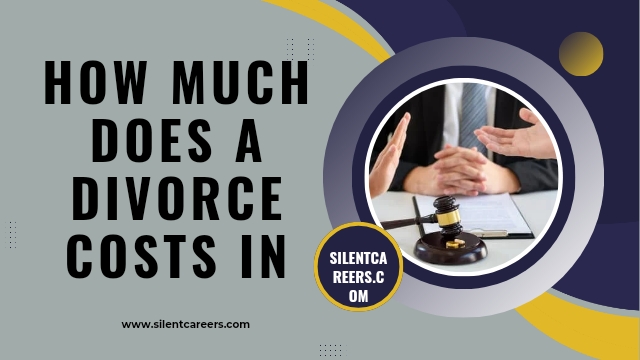
Kickback in Real Estate: In the realm of real estate transactions, a “kickback” refers to an illegal payment or exchange of valuable items made in return for referrals or business arrangements. These practices, often driven by financial incentives, can undermine the integrity of the real estate process and potentially harm consumers.

The Real Estate Settlement Procedures Act (RESPA) strictly prohibits kickbacks and referral fees that involve federally-related mortgage loans. This law aims to protect consumers from inflated costs, unfair practices, and potential conflicts of interest.
What is a kickback in real estate? | Kickback real estate definition
A kickback in real estate refers to the illicit practice where one party, such as a real estate agent, broker, or other service provider, receives a fee or a commission for referring clients to another service provider, such as a mortgage lender, inspector, or contractor. This fee is typically undisclosed to the client and is considered unethical and illegal under various real estate and consumer protection laws.
Key Points:
- Illegal and Unethical:
- Kickbacks are prohibited under the Real Estate Settlement Procedures Act (RESPA) because they can lead to inflated costs for consumers and undermine the integrity of the real estate transaction process.
- RESPA aims to protect consumers by ensuring transparency and fairness in the real estate settlement process.
- Examples:
- A real estate agent receives a secret payment from a home inspector for referring business.
- A mortgage broker gets a fee from a title company for directing clients to use their services.
- Consequences:
- Individuals or companies involved in kickbacks can face significant penalties, including fines, loss of license, and legal action.
- Clients who suspect kickbacks should report the issue to relevant authorities to ensure a fair and transparent transaction process.
Understanding and avoiding kickbacks is essential for maintaining ethical standards and protecting consumer interests in real estate transactions.
Respa kickback examples
RESPA, the Real Estate Settlement Procedures Act, prohibits kickbacks and referral fees in real estate transactions. These are practices where one party receives a thing of value (money, gifts, trips, etc.) in exchange for referring business to another party involved in the settlement process.
Here are some examples of RESPA violations related to kickbacks:
- Mortgage broker pays a real estate agent a fee for every borrower the agent refers. This is a clear violation as the referral is based on the expectation of business, not on the quality of service provided.
- Title company offers a discount on closing costs to a real estate agent for every client they send their way. This discount can be seen as a kickback, even if it’s not directly paid to the agent.
- Home inspector waives their inspection fee for a buyer if the buyer uses a specific lender. This creates an unfair advantage for the lender and could potentially influence the inspector’s objectivity.
- Appraiser inflates the value of a property at the request of a lender in exchange for more referrals. This could mislead the buyer and put them at risk of financial trouble.
Importantly, even small gifts or incentives can be considered violations. Here are some additional points to remember:
- The intent matters. If the purpose of a gift or incentive is to influence business referrals, it’s likely a violation.
- The value doesn’t matter. Even a small gift can be a violation if it’s given with the expectation of a referral.
- Both the giver and receiver can be penalized. If you’re caught offering or accepting a kickback, you could face fines or even lose your license.
Who might be involved in real estate kickbacks?
In real estate kickbacks, several parties might be involved, including:
- Real Estate Agents: May receive or give kickbacks for referrals.
- Mortgage Brokers: Might receive fees for directing clients to certain lenders.
- Home Inspectors: Could pay agents for client referrals.
- Title Companies: May offer incentives for client referrals.
- Contractors: Might pay for being recommended.
- Appraisers: Could be involved in providing or receiving kickbacks for business.
All such practices are illegal under RESPA.
Warning Signs of a Possible Kickback Scheme
- Undisclosed Relationships: Lack of transparency about business relationships between service providers.
- Unusual Fees: Unexpected or excessive fees without clear explanation.
- Mandatory Referrals: Pressure to use specific service providers without justification.
- Complex Paperwork: Confusing or excessive documentation related to fees.
- Lack of Competition: Limited options for choosing service providers.
- Unusual Payment Structures: Payments made outside normal transaction channels.
These signs can help identify potential kickback schemes, ensuring fair and transparent real estate transactions.
Why are kickbacks in real estate illegal?
Kickbacks in real estate are illegal because they:
- Inflate Costs: They can lead to higher costs for consumers due to hidden fees.
- Reduce Transparency: They undermine the trust and transparency necessary in real estate transactions.
- Create Conflicts of Interest: Service providers may prioritize personal gain over client best interests.
- Violate RESPA: The Real Estate Settlement Procedures Act prohibits such practices to ensure fair and honest dealings in real estate transactions.
What is considered a kickback?
A kickback in real estate involves the exchange of compensation or a fee for referring business to another party, which is typically undisclosed to the client and considered unethical and illegal. Here are some examples of what is considered a kickback:
- Referral Fees: A real estate agent receives a payment from a home inspector for recommending their services to clients.
- Undisclosed Payments: A mortgage broker gets a fee from a title company for directing clients to use their services without informing the clients.
- Rebates: An appraiser offers a portion of their fee to a lender in exchange for more appraisal assignments.
- Gifts: A contractor provides valuable gifts or incentives to a real estate agent for referrals.
- Hidden Charges: Any undisclosed financial arrangements that benefit one party in exchange for steering business towards another service provider.
These practices are illegal under the Real Estate Settlement Procedures Act (RESPA) because they can lead to higher costs for consumers, reduce transparency, and create conflicts of interest.
Can real estate agents give or receive kickbacks?
No, real estate agents cannot legally give or receive kickbacks. This practice is prohibited under the Real Estate Settlement Procedures Act (RESPA). RESPA ensures that all parties involved in real estate transactions, including buyers and sellers, are treated fairly and transparently. Here are key reasons why real estate agents cannot engage in kickbacks:
- Legality: RESPA specifically bans kickbacks and unearned fees. Violating this law can result in severe penalties, including fines and loss of license.
- Transparency: Kickbacks undermine the transparency of real estate transactions, hiding the true costs and potentially leading to higher fees for consumers.
- Conflict of Interest: Kickbacks can create conflicts of interest where agents may prioritize personal gain over their clients’ best interests.
- Consumer Protection: The prohibition on kickbacks helps protect consumers from inflated costs and ensures they receive unbiased service.
Real estate agents must always disclose any financial interests or relationships that could influence their professional advice and actions. This transparency helps maintain trust and integrity in the real estate industry.
What happens if a realtor is caught receiving a kickback?
If a realtor is caught receiving a kickback, several consequences can follow, including:
- Legal Penalties: Under the Real Estate Settlement Procedures Act (RESPA), receiving kickbacks is illegal. Realtors can face substantial fines, and in severe cases, criminal charges can be brought against them.
- Loss of License: Real estate agents found guilty of receiving kickbacks may have their professional licenses suspended or revoked by their state’s real estate regulatory authority.
- Reputation Damage: Being caught in illegal activities can severely damage a realtor’s reputation, leading to loss of clients and difficulty finding new business.
- Civil Lawsuits: Clients or other affected parties may file civil lawsuits against the realtor, seeking compensation for damages caused by the kickback arrangement.
- Ethical Violations: If the realtor is a member of professional organizations like the National Association of Realtors (NAR), they may face disciplinary actions, including expulsion from the organization for violating its code of ethics.
The penalties for engaging in kickbacks are designed to uphold the integrity and fairness of the real estate industry, protecting consumers and ensuring transparent business practices.
Read more: What Are Recurring and Non-Recurring Closing Costs?
Difference between “referral fees” or “finder’s fees” and kickbacks
The main differences between “referral fees” or “finder’s fees” and kickbacks lie in their legality, transparency, and intent:
- Legality:
- Referral Fees or Finder’s Fees: These are legal payments made to an individual or entity for referring clients or business to another party. They are typically disclosed upfront and agreed upon by all parties involved.
- Kickbacks: Kickbacks, on the other hand, are illegal payments or compensation exchanged secretly or improperly for referring business. They violate laws like the Real Estate Settlement Procedures Act (RESPA), which aims to prevent hidden fees and ensure transparency in real estate transactions.
- Transparency:
- Referral Fees or Finder’s Fees: These fees are transparent and disclosed to all parties involved in the transaction. They are typically documented in agreements or contracts.
- Kickbacks: Kickbacks are hidden from the client and often involve a lack of transparency. They can lead to inflated costs for consumers and undermine trust in the transaction process.
- Intent:
- Referral Fees or Finder’s Fees: These fees are intended to compensate the referring party for legitimate services, such as connecting clients with needed services or professionals.
- Kickbacks: Kickbacks are usually intended to benefit the receiving party at the expense of fair business practices and consumer interests. They often involve a conflict of interest where the referral may not be in the client’s best interest.
In summary, while referral fees or finder’s fees are legal and transparent payments for legitimate referrals, kickbacks are illegal, secretive, and typically undermine the integrity of business transactions. It’s essential for real estate professionals to adhere to legal and ethical guidelines to maintain trust and fairness in their dealings.
Difference between “closing cost credit” and kickbacks
The main differences between a “closing cost credit” and kickbacks in real estate transactions are as follows:
- Nature and Purpose:
- Closing Cost Credit: A closing cost credit is a legitimate financial arrangement where the seller agrees to credit the buyer a certain amount at closing. This credit is often negotiated as part of the purchase agreement to help the buyer cover some or all of their closing costs, such as loan origination fees, appraisal fees, or title insurance. It is disclosed in the purchase agreement and documented in the closing documents.
- Kickbacks: Kickbacks, on the other hand, are illegal payments or incentives exchanged secretly or improperly between parties involved in a transaction. They are not disclosed to the client and are intended to benefit the receiving party at the expense of transparency and fair business practices.
- Legality:
- Closing Cost Credit: Closing cost credits are legal and commonly used in real estate transactions to help facilitate the sale and alleviate some of the financial burden on the buyer.
- Kickbacks: Kickbacks are illegal under laws like the Real Estate Settlement Procedures Act (RESPA) because they can lead to inflated costs for consumers and undermine the transparency and fairness of the transaction process.
- Disclosure:
- Closing Cost Credit: The closing cost credit is disclosed upfront in the purchase agreement and must be documented in the closing documents.
- Kickbacks: Kickbacks are hidden from the client and other parties involved in the transaction, violating disclosure requirements and ethical standards.
In summary, while a closing cost credit is a legitimate financial arrangement intended to assist buyers with their closing expenses and is openly disclosed, kickbacks are illegal, secretive payments or incentives that violate laws and ethical standards in real estate transactions.
Can you gift a client without it being a kickback?
Yes, you can gift a client without it being considered a kickback, provided that the gift is given transparently and complies with legal and ethical guidelines. Here are some key considerations to ensure that a gift to a client remains appropriate:
- Disclosure: The gift should be disclosed to all parties involved in the transaction, including the client and any relevant regulatory authorities or organizations (if applicable).
- Intent: The gift should be given with genuine goodwill and without any expectation of receiving business or referrals in return. It should not be tied to any specific transaction or conditional on the client’s actions.
- Value and Frequency: The value of the gift should be reasonable and appropriate for the circumstances. Excessive or frequent gifts may raise concerns about influence or impropriety.
- Compliance: Ensure that the gift complies with any applicable laws, regulations, and ethical standards governing your profession or industry. For real estate professionals, this includes adhering to guidelines set forth by organizations like the National Association of Realtors (NAR).
By following these guidelines, gifts to clients can be a thoughtful gesture of appreciation that fosters goodwill and strengthens professional relationships, without crossing into the realm of illegal kickbacks.
Which agency enforces RESPA violations?
RESPA violations are enforced by the Consumer Financial Protection Bureau (CFPB). The CFPB is responsible for ensuring compliance with the Real Estate Settlement Procedures Act (RESPA), which includes investigating complaints, conducting examinations, and taking enforcement actions against entities found to have violated RESPA regulations.
They aim to protect consumers by promoting transparency and fair practices in real estate transactions. Violations of RESPA can lead to significant penalties, including fines and corrective actions to remedy non-compliance.
Can an agent receive a fine for a kickback?
Yes, an agent can receive a fine for engaging in kickbacks. Kickbacks are illegal under the Real Estate Settlement Procedures Act (RESPA), and violations can result in penalties imposed by regulatory agencies such as the Consumer Financial Protection Bureau (CFPB).
Fines for RESPA violations can be substantial, depending on the severity of the offense and any mitigating factors. In addition to fines, agents found guilty of kickbacks may face other consequences such as license suspension or revocation, civil lawsuits, and damage to their professional reputation. It’s crucial for real estate professionals to adhere to RESPA guidelines and ethical standards to avoid legal and financial repercussions.
Is there such a thing as a legal kickback?
No, there is no such thing as a legal kickback in the context of real estate transactions. Kickbacks involve illegal and unethical practices where one party receives undisclosed compensation or benefits for referring business to another party. These activities are specifically prohibited under laws like the Real Estate Settlement Procedures Act (RESPA), which aims to ensure transparency and fairness in real estate transactions.
In legal and ethical terms:
- Transparency: All financial arrangements, including referral fees or credits, must be openly disclosed to all parties involved.
- Fairness: Payments should reflect legitimate services or value provided, without creating conflicts of interest or inflating costs for consumers.
Any form of compensation or incentive that is not transparently disclosed and does not represent fair value for services rendered can be considered a kickback and is subject to legal penalties and regulatory scrutiny.
Is a thank-you gift considered a kickback?
A thank-you gift, given genuinely and without any expectation of reciprocal business or referrals, is generally not considered a kickback. However, the context and intent behind the gift are crucial factors:
- Genuine Appreciation: If the gift is a gesture of gratitude for a client’s business or a professional relationship, and it is not tied to specific transactions or contingent on future referrals, it is typically viewed as a permissible and ethical practice.
- Value and Frequency: The gift should be reasonable in value and frequency. Excessive or lavish gifts may raise concerns about influence or impropriety.
- Disclosure: While a thank-you gift does not necessarily require formal disclosure, transparency is important. If there are any doubts about the appropriateness of the gift, it’s advisable to disclose it to the client and ensure it complies with your organization’s policies and industry standards.
In summary, a thank-you gift is generally acceptable as long as it is given sincerely and does not violate any legal or ethical standards related to kickbacks or improper inducements in business transactions.
What other actions are illegal under RESPA?
Under RESPA (Real Estate Settlement Procedures Act), in addition to kickbacks, the following actions are also considered illegal:
- Fee-Splitting: This involves splitting fees between settlement service providers without performing a corresponding service or providing value.
- Markups: Inflating the cost of settlement services beyond their market value without providing additional services or value.
- Required Use: Requiring a consumer to use a particular settlement service provider (such as a title insurance company or attorney) as a condition of the transaction, unless certain exemptions apply.
- Unearned Fees: Charging fees for services that were not performed or were unnecessary.
- Referral Fees: Accepting or paying fees or other forms of compensation for referring settlement service business, unless these fees are disclosed and represent actual services provided.
These actions are prohibited under RESPA to ensure transparency, fair competition, and consumer protection in real estate transactions. Violations of RESPA can result in significant penalties, including fines, legal actions, and other disciplinary measures. It is crucial for real estate professionals and settlement service providers to be aware of and comply with RESPA regulations to avoid legal consequences and uphold ethical standards in their practices.
Final thoughts on kickbacks in real estate
Kickbacks in real estate transactions are not only illegal but also unethical. They undermine transparency, inflate costs for consumers, and create conflicts of interest that can harm the integrity of the transaction process.
Real estate professionals should strictly adhere to RESPA guidelines and ethical standards to maintain trust with clients and uphold the fairness of the industry. Avoiding kickbacks ensures a level playing field where clients receive unbiased advice and services without hidden agendas or inflated fees. Upholding these principles is essential for the long-term health and reputation of the real estate profession.








